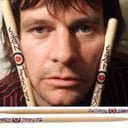Which author composed a poem titled ‘The Moon” that is preceded with a quote from Sir Walter Raleigh?
The moon has enthralled poets who worshipped its melancholic beauty, shrouded in a mysterious haze. Poems about the moon were featured by the romantic poets who used it as a symbol.
Commentaries about these poets suggest their words offer the reader a rare world of dreams. The Moon is both the mistress of the night, patroness of illusions, a symbol of unhappy and unrequited love. It is also, identified with the feminine, maternal principle. For poets, the Moon symbolized the ideal world of dreams, beauty, and creativity.
The poem titled ‘The Moon’ by Henry David Thoreau (1850-1894) begins with a quote from the English statesman, a notable figure of the Elizabethan era, Sir Walter Raleigh (1552-1618): “Time wears her not; she doth his chariot guide; Mortality below her orb is placed”.
Then the poem continues with Thoreau’s poem: The full-orbed moon with unchanged ray / Mounts up the eastern sky, / Not doomed to these short nights for aye, / But shining steadily.
Henry David Thoreau was an American author, poet, philosopher, abolitionist, naturalist, tax resister, development critic, historian, and leading transcendentalist.
Percy Bysshe Shelley composed the poem titled “To the Moon”; Emily Dickinson wrote two poems about the Moon, the first is titled “The Moon Was But a Chin of Gold” and the second one is titled “The Moon is Distant From the Sea”; Robert Frost also composed two poems about the moon, one titled “The Freedom Of The Moon” and “Moon Compasses”.
More Info:
www.thoreau-online.org

